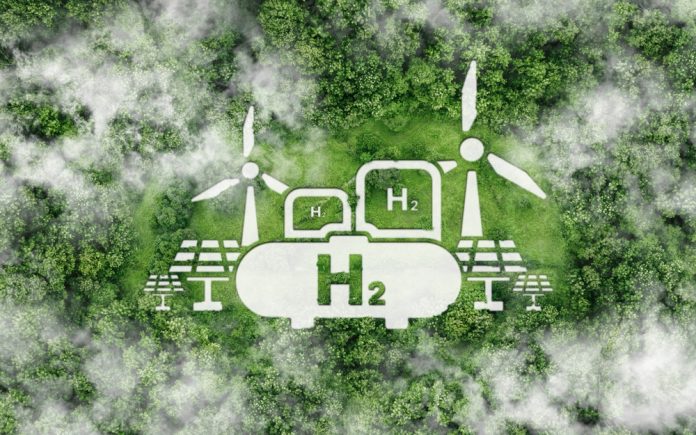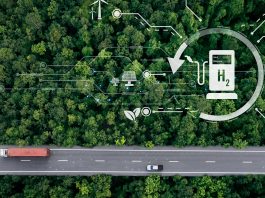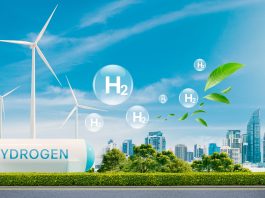The United States Department of the Treasury (Treasury) and Internal Revenue Service (IRS) have announced final rules for the Section 45V Clean Hydrogen Production Tax Credit.
Established under the Inflation Reduction Act (IRA), this groundbreaking policy incentivises clean hydrogen production while adhering to strict emissions standards.
The updated guidelines offer clarity, flexibility, and investment certainty, signalling a major step toward advancing the clean energy economy.
Why clean hydrogen is essential for the energy transition
Clean hydrogen is a linchpin in the global push toward sustainability, with the potential to decarbonise hard-to-abate sectors like heavy industry, long-haul transport, and power generation.
Produced through processes that emit little to no greenhouse gases, clean hydrogen offers an alternative to fossil fuels, enabling industries to transition to greener operations.
By investing in clean hydrogen technologies, the US positions itself as a global leader in tackling climate change and creating a robust, clean energy economy.
US Deputy Energy Secretary David Turk explained: “Clean hydrogen can play a critical role in decarbonising multiple sectors across our economy, from industry to transportation, energy storage and much more.
“The final rules announced today set us on a path to accelerate deployment of clean hydrogen, including at the Department of Energy’s clean Hydrogen Hubs, leading to new economic opportunities all across the country.”
Key highlights of the final rules
After evaluating nearly 30,000 public comments and collaborating with expert agencies like the Department of Energy (DOE) and Environmental Protection Agency (EPA), the Treasury and IRS finalised rules that balance environmental rigour with industry practicality.
The rules address lifecycle emissions, offer pathways for various hydrogen production methods, and support projects under the DOE’s Regional Clean Hydrogen Hubs initiative.
Lifecycle emissions standards
To qualify for the Clean Hydrogen Production Tax Credit, hydrogen production must emit no more than 4 kilogrammes of carbon dioxide equivalents (CO₂e) per kilogramme of hydrogen.
The credit is tiered, with the cleanest hydrogen earning the highest incentives. Lifecycle emissions analyses account for both direct emissions and significant indirect emissions, ensuring all production methods meet environmental benchmarks.
Updates for electrolytic hydrogen
Hydrogen produced using electricity, including ‘green’ hydrogen (from renewables) and ‘pink’ hydrogen (from nuclear), received several key updates:
- Energy Attribute Certificates (EACs): Producers must meet strict criteria for temporal matching, deliverability, and incrementality to use EACs for compliance. This ensures that grid-induced emissions are minimised.
- Temporal matching transition: By 2030, electricity used for hydrogen production must match renewable generation on an hourly basis, replacing the current annual matching approach.
- Deliverability: Facilities must source electricity from the same grid region or demonstrate interregional transfer compliance.
The final rules also recognise incremental clean power generation from new renewable or nuclear facilities and upgrades, including provisions for nuclear reactors at risk of retirement.
For example, up to 200 megawatts per qualifying reactor can count as incremental power when linked to hydrogen investments.
Innovations for methane-based hydrogen
For methane-derived hydrogen, such as ‘blue’ hydrogen, the Clean Hydrogen Production Tax Credit final rules provide detailed guidelines:
- Methane leakage rates: Producers must initially use default national leakage values, with future iterations of the 45VH2-GREET model incorporating project-specific data from the EPA’s Greenhouse Gas Reporting Program.
- Renewable Natural Gas (RNG) and coal mine methane: The regulations broaden qualifying feedstocks, including wastewater, animal manure, and landfill gas, while ensuring comprehensive lifecycle emissions analyses.
- Book-and-claim systems: By 2027, a new system will allow certification and use of RNG through streamlined reporting, fostering market development for natural gas alternatives.
The rules offer investment certainty by enabling producers to use the version of the GREET model available when a facility begins construction, safeguarding against future changes.
State policies and incrementality
The rules identify state-level clean energy policies as pivotal in determining compliance with incrementality standards.
Washington and California currently meet these criteria due to their strong emissions caps paired with renewable portfolio standards. As more states adopt similar policies, the potential for clean hydrogen projects will expand further.
Driving the clean hydrogen economy forward
With the release of these Clean Hydrogen Production Tax Credit rules, the US is laying the groundwork for a clean hydrogen revolution.
The forthcoming updates to the 45VH2-GREET model will further enhance accuracy in emissions assessments, ensuring a smooth path for hydrogen producers to claim tax credits.
By providing clarity, flexibility, and investment certainty, these rules empower stakeholders to move forward confidently, accelerating clean hydrogen adoption.









